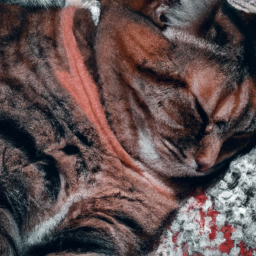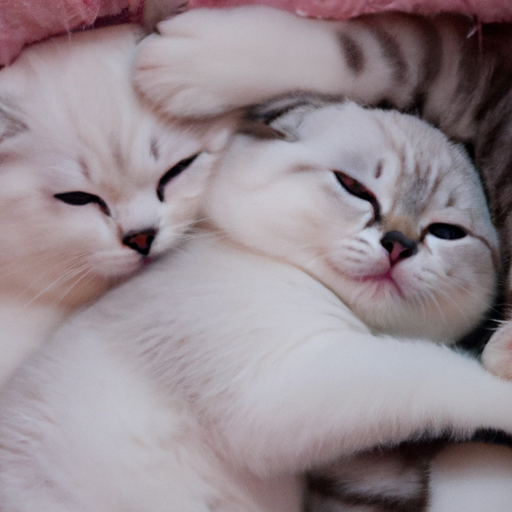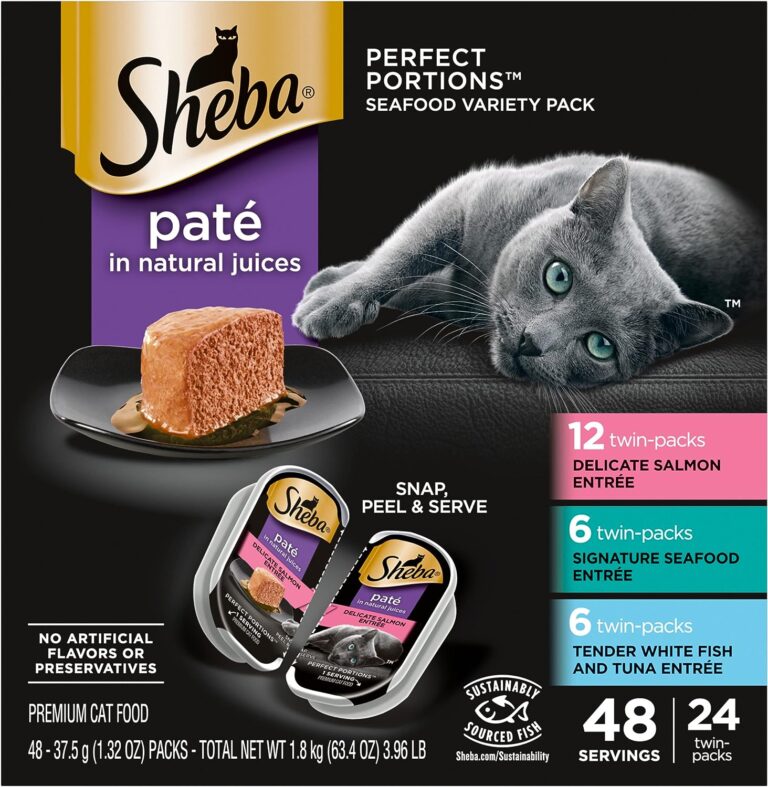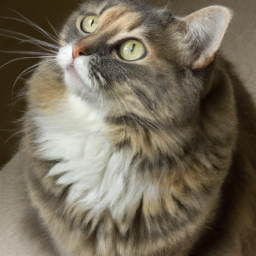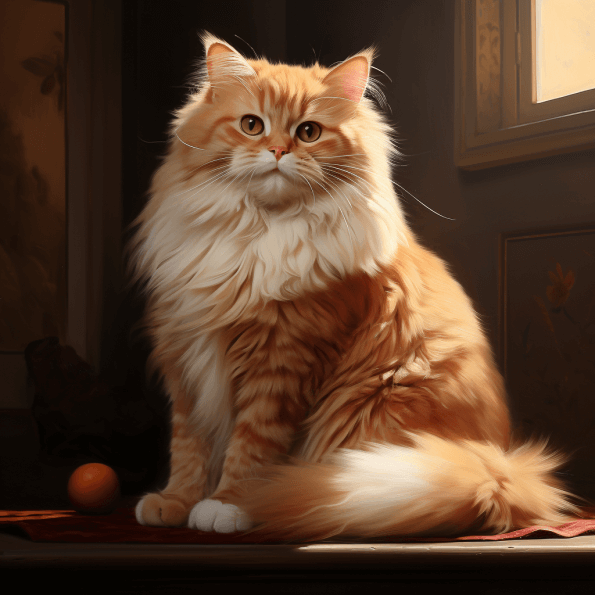Devon Rex
For cat lovers and feline enthusiasts, it’s time to unveil a cat breed that is unique, cherished, and downright charming – the Devon Rex. Like a coquettish feline with an avant-garde hairstyle, the Devon Rex flaunts a coat that is both curly and short, an attribute that you can’t help but admire. In this engaging piece, you’ll learn more about the distinct characteristics that make the Devon Rex a captivating breed. We’re going to explore their playful nature, grace, size and appearance along with various charming quirks that make them quintessential pets. It’s going to be purr-fectly delightful!
Origins of the Devon Rex
Background and discovery of the breed
The Devon Rex is a unique and charming breed, getting its unusual name from the place of its origin – Devonshire, England. An unexpected surprise, the first Devon Rex cat came into existence purely by accident. A feral tomcat and a curly-coated stray gave birth to a litter of kittens, among which was a peculiar curly-coated kitten. This kitten caught the attention of cat lover Beryl Cox in 1960 and thus marked the advent of the Devon Rex breed.
Development of the breed over time
Since its early days, the Devon Rex breed has evolved significantly over time. The distinctive curly coat and pixie-ish features of the first Devon Rex kitten were gradually enhanced through selective breeding. The breed earned recognition from The International Cat Association in 1979 and has grown substantially in popularity over the years, respected for its distinctive looks and charming personality.
Physical Characteristics of the Devon Rex
Size and weight
The Devon Rex is a medium-sized breed, typically weighing in between 5 to 10 pounds. Males are slightly larger than females, but either gender presents a strong and muscular body structure.
Coat and colours
Most distinguishing about the Devon Rex is its short, soft, and curly coat. The coat comes in a wide array of colours and patterns, from solid white, black, blue, and red to bi-colour, colourpoint, tabby, and tortoiseshell.
Distinctive facial features
Upon first glance, the Devon Rex might remind you of a pixie or an elf, creditable to its unique face. With large, oval eyes that can be a multitude of colours, prominent cheekbones, and a short muzzle, the Devon Rex sports an endearing and mischievous appearance.
Body structure
The muscular body of a Devon Rex is complemented by its slender yet sturdy legs and small, oval feet. It’s completed with a long, fine tail that tapers towards the end. These cats also boast a chest that is quite broad with a noticeable tuck-up.

Personality and Behaviour of the Devon Rex
Typical personality traits
Affectionate, playful and sociable, in the cat world, the Devon Rex would be the life and soul of a party. This breed thrives on attention and is always eager to engage in fun and games.
Common behavioural tendencies
The Devon Rex is known for its clownish antics. They love to jump, climb, and explore. Also, don’t be surprised if your Devon Rex fetches toys like a dog or learns to open doors and drawers out of sheer curiosity.
Interaction with humans
Far from aloof, Devon Rex cats are loyal and love human companionship. They’ll follow you around the house, curl up in your lap when you sit down, and might even perch on your shoulder given a chance. They love to involve themselves in whatever you’re doing, making them a joy to have around.
Interaction with other animals
The sociable nature of the Devon Rex extends to other animals as well. They generally get along well with other cats and dogs, making them an excellent choice for multi-pet households.
Health and Lifespan of the Devon Rex
Average lifespan
The Devon Rex typically lives between 9 to 15 years. However, with good care and regular veterinary check-ups, many individuals of this breed have been known to live beyond this range.
Common health concerns and genetic problems
While generally robust, the Devon Rex breed can be prone to certain health issues like hypertrophic cardiomyopathy, patellar luxation, and hereditary myopathy. These conditions are not a guarantee, but it’s essential to be mindful of them and to ensure your Devon Rex undergoes regular health screenings.
Feeding and diet recommendations
A balanced diet is essential to keep your Devon Rex healthy and active. Feed them high-quality cat food that’s appropriate for their age, weight and health status. Homemade diets and raw food come with their pros and cons, so it’s best to take advice from a trusted vet before venturing down this route.
Grooming Needs of the Devon Rex
Frequency and tools required for grooming
Despite their curly coat, Devon Rex cats don’t demand extensive grooming. A gentle comb through their coat once a week should suffice. The tools you would need include a soft brush or fine-tooth comb and a soft, damp cloth for cleaning their large ears.
Special care for the coat
Due to the thin nature of the Devon Rex’s coat, they are more susceptible to temperature changes. Make sure to keep your furry friend warm in the colder months and be mindful of sunbathing in the hotter ones, as they can get sunburned.
Oral hygiene, nail care, and ear cleaning
Maintaining oral health is crucial. Regular brushing of teeth, routine vet check-ups for dental health as well as trimming their nails make part of your Devon Rex’s grooming routine. Their prominent ears are easy to check and should be kept clean with a vet-approved cleanser.
Exercise and Activity Levels
Typical energy levels
The Devon Rex is an active and energetic breed. Known for their agility and love for play, they’re a bundle of energy waiting to be unleashed.
Needs for physical stimulation
Physical stimulation is crucial for this breed. Provide them with plenty of toys and set aside time each day for a fun play session. They love engaging games like ‘fetch’ and will appreciate tall cat trees to climb and explore.
Types of play and exercise suited for Devon Rex
Given their acrobatic nature, a cat agility course or puzzle toys can be excellent ways to keep a Devon Rex entertained. Interactive toys that trigger their hunting instincts can also provide both mental and physical stimulation.
Training and Intelligence
Learning capability and trainability
Devon Rex cats are intelligent and have a good learning capability. They can be trained to follow commands and even learn to perform small tricks. It’s an excellent way to engage their sharp minds and strengthen your bond with them.
Common tricks and commands the breed can learn
From fetching a ball to turning off light switches, the Devon Rex can learn a variety of commands and tricks. With a bit of patience and positive reinforcement training, you’ll be amazed at what your Devon Rex is capable of.
Role of Devon Rex in competitive events and shows
The breed’s distinctive looks, agility and intelligence makes them excellent contenders in cat shows and competitive events. Many Devon Rex cats have successfully participated in agility trials and won awards in cat shows.
Living Conditions and Home Environment
Appropriate home environments
The Devon Rex adapts well to various living conditions. Whether you live in a small apartment or a big house, as long as you provide them with enough stimuli and attention, your Devon Rex will be happy.
Compatibility with children and other pets
Their affectionate and playful nature makes them great companions for children. They’re also compatible with other pets and can get along well with both dogs and other cats.
Considerations for indoor vs outdoor living
For safety reasons and to prevent them from catching diseases and parasites, it’s generally recommended for the Devon Rex to be kept as an indoor-only cat. However, if you have a secured garden or a cat enclosure, occasional outdoor adventures won’t do any harm.
Adoption and Purchasing
Finding reputable breeders
If you’re considering adding a Devon Rex to your family, it’s imperative to find a reputable breeder. Trustworthy breeders will ensure that the kittens are bred ethically and health checked for potential genetic problems.
Cost of adoption or purchase
The cost of purchasing a Devon Rex can vary depending on the breeder, the cat’s age, and its pedigree. Generally, these cats may cost anywhere between $500 to $1500. Adoption, however, can be a more affordable option.
Checklist for bringing a Devon Rex home
Before bringing home a Devon Rex, ensure you have all the essentials ready – a comfortable bed, feeding and drinking bowls, litter box, grooming tools, and lots of toys. Take time to kitten-proof your house by securing loose wires and removing toxic plants.
Famous Devon Rex Cats
Devon Rex cats in popular culture and media
While there’s a lack of Devon Rex cats starring in movies or TV shows, they are quite popular on social media platforms due to their elf-like appearance and charming disposition.
Famous owners of the breed
Frenchie, the beloved Devon Rex of singer-songwriter Leona Lewis, is one of the most famous of its kind. Leona often shares photos and videos of her feline friend on social media, further popularising this wonderful breed.
Notable stories about the breed
One of the most colorfully yarned tales of the breed involves Kirlee, the first recognized Devon Rex. Many supposed that he was related to the Cornish Rex owing to their similar curly-haired quirk. However, genetic testing dispelled this theory, proving the Devon Rex was its own, distinct breed.

